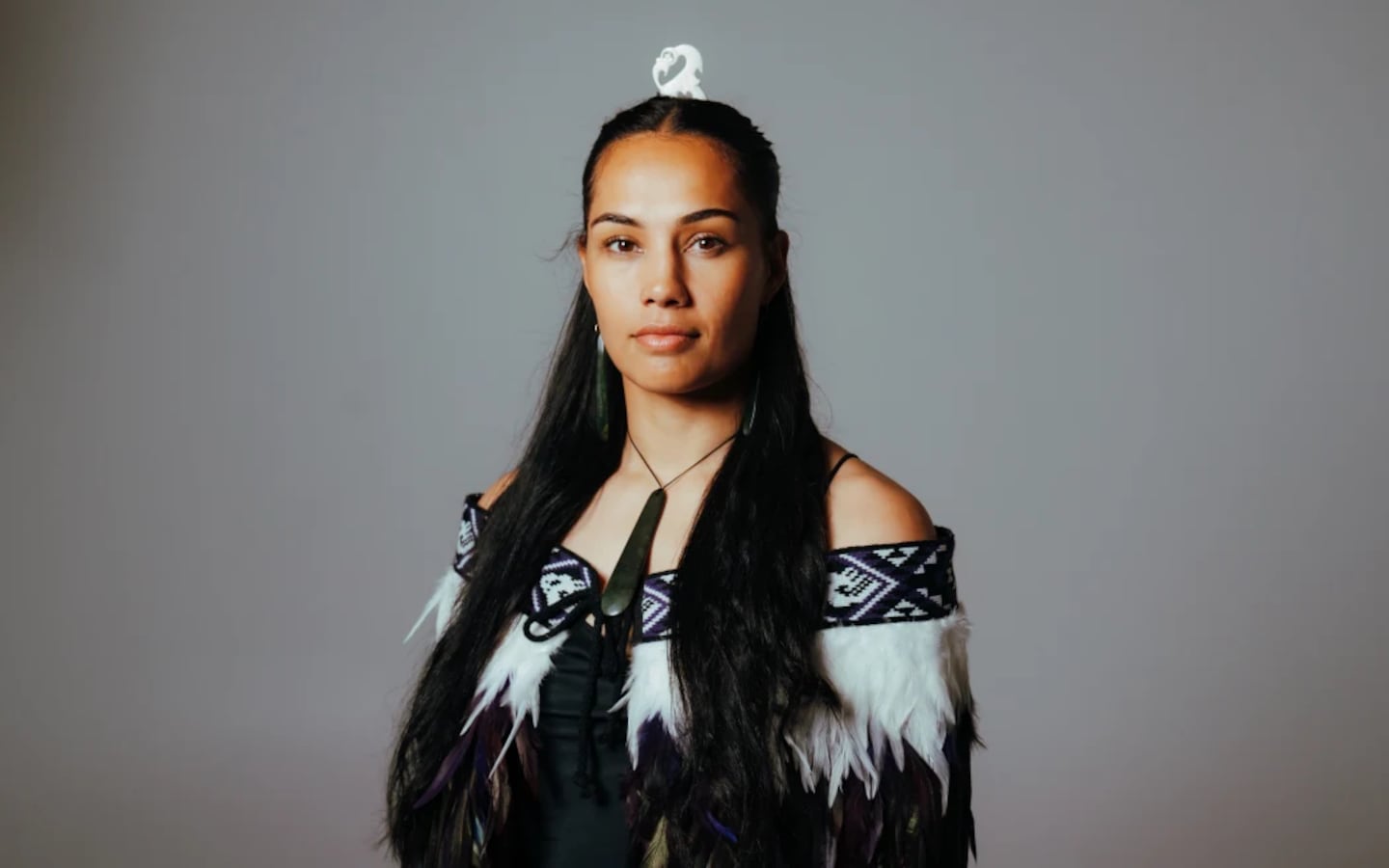This article was first published on RNZ.
Janay Harding (Waikato-Tainui, Ngāpuhi) grew up disconnected from te ao Māori, but says reclaiming her reo has given her identity, grounding, and strength.
Born in Ōtautahi and raised in Australia from the age of 10, Harding said she often felt distant from her whakapapa.
“I predominantly grew up on my Pākehā side,” she told RNZ.
“Tōku māmā is Pākehā and then my papa is Māori, but he wasn’t always in the picture.
“So I was disconnected from my Māori side, which was obviously a bit confusing, trying to put those pieces back together.”
Harding is the first in her mother’s lineage to whakapapa Māori, and while her māmā tried to incorporate te ao Māori into her upbringing, Harding was “never really exposed to it”.
“I never had that opportunity for connection and then moving to somewhere like the Gold Coast and Ahitereiria that obviously makes you further away and more disconnected.
“I just didn’t have [te reo] around me.”
That disconnection left Harding navigating pātai around identity. She often battled with the label of being a “plastic Māori” or the feeling of not being “Māori enough”, a kōrero she now rejects.
“There’s that kōrero around when you’re a dark-skinned Māori without your mātauranga Māori and then you’re a light-skinned Māori with your mātauranga Māori.
“There’s those two ends of the spectrum that make it hard in different ways for discrimination … so for me it was the latter.
“Being dark-skinned and looking very Māori, but having no comprehension or wānanga of the culture, or even tikanga.”
She credits her friend and artist Jordyn With a Y with shifting her whakaaro, recalling her words that there is no such thing as a “plastic Māori”.
“While I understand where that kōrero comes from, at the same time, it creates a negative narrative.”
The next generation of rangatahi who kōrero Māori and stand tall within their Māoritanga do not accept that narrative, Harding said.
“It doesn’t matter what ‘percentage’ you are. Like that literally is not even an issue in the chat. Like it shouldn’t even be in the chat.
“It’s just more about how much you are going to connect with it.”

A call to come home
Harding’s professional fighting career took her across the globe, representing Aotearoa on the world stage in mixed martial arts.
“When I was travelling everyone would be like, oh, so you’re Māori? Tell me about it. And I’m like, well, I don’t really know.
“I wouldn’t even really be able to, back then, tell you the history of the Treaty of Waitangi.”
When she returned home from touring, Harding came to a realisation.
“I was like, okay, I’ve been representing this New Zealand flag specifically on the international stage for a long time.
“Everyone knows that I’m Māori, I’ve never been ashamed to say that, but I definitely don’t feel it, I would say, internally.”
Three years ago, Harding returned to Aotearoa, and while her initial motivation was to progress her MMA career, she quickly realised the move meant a whole lot more.
“Moving back, you just have that calling to your reo and your identity and figuring out your whakapapa.
“I started a deep dive and took it more seriously about two years ago.”
Like many beginning their reo Māori journey, Harding said she too experienced the feeling of whakamā, afraid to join a class at first. She relied on online courses before eventually enrolling at Te Whare Wānanga o Awanuiārangi, and is now studying with Te Wānanga o Aotearoa.
Through these wānanga, Harding has felt more connected to her culture, tūpuna and whakapapa.
“The first thing in most wānanga for reo Māori is learning your pepeha and then expanding that pepeha and then expanding that pepeha more and then finessing that pepeha,” she said.
“It’s all about you and your identity because you’re so much more than just a name or a person. You are your awa and your maunga.”
For that reason, Harding is the by-product of all the people who came before her, she said.
“I think that creates such a fuller identity as a person.”
‘Being Māori is your superpower’
Now 30, Harding said her Māori identity is something she carries proudly.
“Being Māori is your superpower. That’s your ability to be uniquely yourself and take that identity into the world.”
Through reclaiming te reo Māori, her sense of character and integrity has only grown.
“You can walk into more spaces confidently knowing all of this understanding of yourself.”
Reflecting on where she is now on her journey of reconnection, in comparison to where she was at 15, she understands the power of knowing who you are and where you come from.
“I don’t really care if I was brought up in Christchurch and the Gold Coast, that doesn’t define me.
“It did when I began, for sure, but now I’m just like, oh, if I can do it, anyone can do it ... which just shows that no matter how disconnected you were, you can come back to it at any point.”
Her message for others just beginning their reo haerenga: “Kia kaha, kia māia, kia manawanui (Be strong, be brave, be steadfast).”
“It’s never as scary as you think. Once you start, it’ll honestly change your life and open more doors than you can imagine.”
Harding said the best learning comes through failure and making mistakes, and her challenge to others is to push through that feeling of whakamā.
“Once you start on your haerenga, honestly, the ball keeps rolling.”
This article is part of an ongoing series by Māori news journalist Layla Bailey-McDowell, sharing the journeys of individuals reclaiming the taonga of te reo Māori and embracing their Māoritanga.
By Layla Bailey-McDowell of RNZ.



